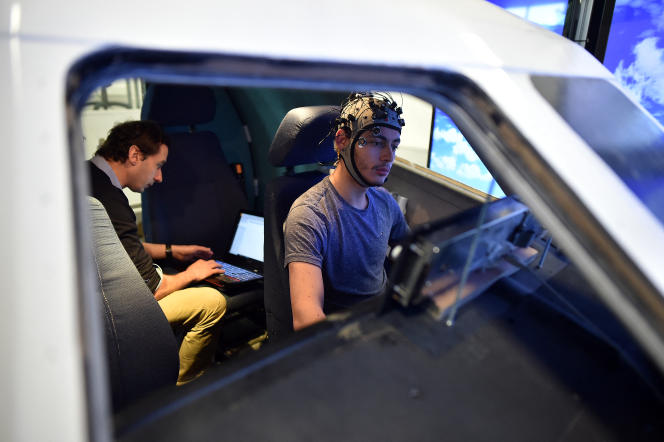Are we at the beginning of a new era of aviation? It is with this exhilarating hypothesis that Bertrand Piccard addressed the 2,400 students of the IPSA aeronautical and space engineering school, during the 2022 graduation ceremony. The explorer, known for having been the first to complete a non-stop round-the-world flight in a non-stop balloon and in a fuel-free solar plane, delivered an account of aeronautics broken down into two phases.
A reckless period, first, inaugurated by the first motorized flight of the Wright brothers, one hundred and twenty years ago, marked by the crossing of the sound barrier, or even the reaching of the Moon. Then a second phase, more moderate, characterized by optimization, with the design of more efficient, safe and comfortable aircraft, throughout the last sixty years. The Swiss adventurer concludes by urging students to return to the path of innovation: “This is the plane you are going to build that will be able to transport hundreds of passengers in a clean way. Get to work. »
The challenge arouses vocations. In the spring of 2022, more than 10,000 young graduates or students were asked about their favorite companies as part of the Epoka-Harris Interactive ranking in partnership with The Student. While aeronautics was struggling in the previous ranking, it is now one of the potential recruiters favored by respondents.
A “Top Gun” effect
The Airbus group is the most cited as a reference employer. Engineering schools specializing in aeronautics are also experiencing renewed interest. At IPSA, the number of candidates increased by 12.5% between 2022 and 2023. “The market is recruiting, and there has been a Thomas Pesquet effect in the increase in vocations for space, as well as a Top Gun for aviation »summarizes Anne-Ségolène Abscheidt, Director General of IPSA.
Adrien Treille, 20, student at IPSA, highlights the desire to participate in the ecological transition of the sector: “I did an internship as an assistant engineer in business aviation, which is increasingly criticized because of private jets. Right from my job interview, I was asked about the impacts of air transport on the environment. As for many of my comrades, this issue is not a brake on my motivation, but a motor. Aspiring aeronautical engineers have always been passionate, here we are pioneers. »
As the sector returns to growth, schools are working on their attractiveness. Women represent an important source of recruitment: they represent only 27% of hires – a result “to be related to rates of feminization capping at 20% on average in our main scientific and technical training courses”according the latest report from the Grouping of French aeronautical and space industries (Gifas). Schools are stepping up awareness-raising operations with high school girls and partnerships with associations advocating gender equality in industrial sectors.
You have 47.05% of this article left to read. The following is for subscribers only.
